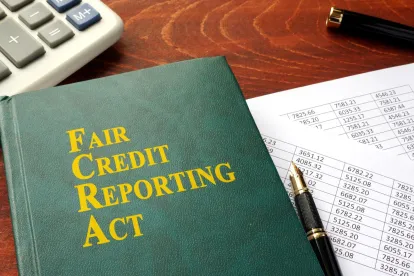In Perkins v. MOHELA, 5:19-cv-01281-FB-HJB (W.D. Texas), Ms. Kanita Perkins sued Missouri Higher Education Loan Authority (“MOHELA”) and a handful of other defendants for violating the Fair Credit Reporting Act (“FCRA”). Ms. Perkins transitioned from the Air Force and chose to attend dental school. Not cheap. While applying for financial aid, she learned that she was a victim of identity theft and several fraudulent loans were taken out in her name. She made this discovery in May, 2018. After providing proof of identity theft to MOHELA, it failed to discharge the loan right away and instead waited until April, 2019 to discharge. In spite of this being resolved, MOHELA continued to report inaccurate information to the Credit Reporting Agencies (CRAs) after receiving dispute notices. Yikes.
In turn, MOHELA tried to argue that it was immune from suit under Eleventh Amendment because it was “an arm of the State of Missouri”. But that Hail Mary pass was not caught because MOHELA failed to show how Missouri was the source of MOHELA’s funds or how the Missouri treasury would be liable for a judgment against MOHELA. Indeed, the magistrate found that MOHELA’s finances were “completely independent” from state funds. This was clear from MOHELA’s own governing statutes. And because of the “[e]xpress financial segregation . . . from state funds, and the lack of obligation for the state to pay MOHELA’s debts, ‘strongly’ weigh[ed] against an application of sovereign immunity”, the magistrate judge recommended that MOHELA’s motion for judgment on the pleadings be denied—stay tuned to learn to see where judge lands.
Why is the money nexus so important in determining whether an entity is immune from suit? Well, in Clark v. Tarrant Cty., 798 F.2d 736 (5th Cir. 1986), the Fifth Circuit detailed six factors to “balance the equities and determine ‘whether the suit is in reality a suit against the state itself.’” These six Clark-factors are: (1) whether the state statutes and case law view the entity as an arm of the state; (2) the source of the entity’s funding: (3) the entity’s degree of local autonomy; (4) whether the entity is concerned primarily with local, as opposed to statewide, problems; (5) whether the entity has the authority to sue and be sued in its own name; and (6) whether the entity has right to hold and use property. Over time, the source of funds factor has been accorded the most weight because “‘an important goal of the Eleventh Amendment is the protection of state treasuries.’” And, let’s face it, MOHELA doesn’t need the state treasury. According to the complaint, MOHELA held $54.8 billion in student loan assets serviced as of June, 2018. That’s BILLIONS folks.
Speaking of billions in loans, the CARES Act provides broad relief for federal student loans borrowers. Namely, qualifying loan payments have been postponed and interest set to 0% until September 30, 2020. The CARES Act impacts MOHELA because MOHELA does service some federal loans. And even outside the student loan marketplace, just think of all those borrower accounts across the nation that will require adjusted compliance condition codes during this period due to accommodations and how that may stress furnishers and CRAs processes and procedures to maintain accurate credit reports. A way to mitigate against this unforeseen operational friction is to ensure COVID-19 compliance policies are implemented and employees are trained to the policies. Policies and training keep operations reasonable and far, far away from willful.
Maybe better policies and training would have prevented a case like this . . . stay tuned.




 />i
/>i
